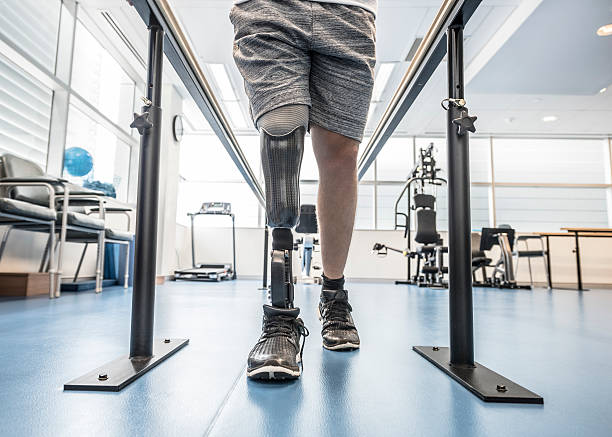


Upper Limb Prosthetics: For individuals who have undergone amputation of the arm or hand due to cancer, upper limb prosthetics can provide essential functionality. These can range from basic cosmetic hands to advanced myoelectric prostheses.
Lower Limb Prosthetics: Individuals who have undergone amputation of the leg due to cancer can benefit from lower limb prosthetics. These can include below-knee or above-knee prostheses with various features to enhance mobility and comfort.
Functional Rehabilitation: Physiotherapy and rehabilitation play a crucial role in helping individuals adapt to and maximize the use of their prosthetic devices. Rehabilitation focuses on improving strength, balance, mobility, and overall functionality.
Cosmetic Restoration: Prosthetics are designed not only for functionality but also for cosmetic restoration. The appearance of the prosthetic limb is carefully crafted to resemble the natural limb, providing individuals with a sense of normalcy.
Psychological Support: Cancer-related amputations can have profound psychological effects. Prosthetics contribute to restoring a positive self-image and can play a role in the emotional healing process. Support from mental health professionals and peer groups is often incorporated into the rehabilitation process.
Technological Advances: Ongoing advancements in prosthetic technology, such as myoelectric and computerized components, contribute to more natural movements and improved user control. Lightweight and durable materials enhance comfort and overall performance.

4 /120-F, PandikovilRing Road,
Airport – Mattuthavani Ring Rd,
Madurai
Tamilnadu – 625107.